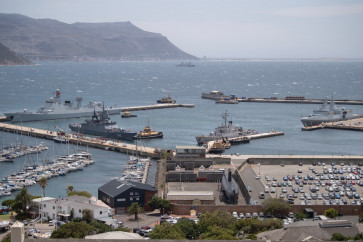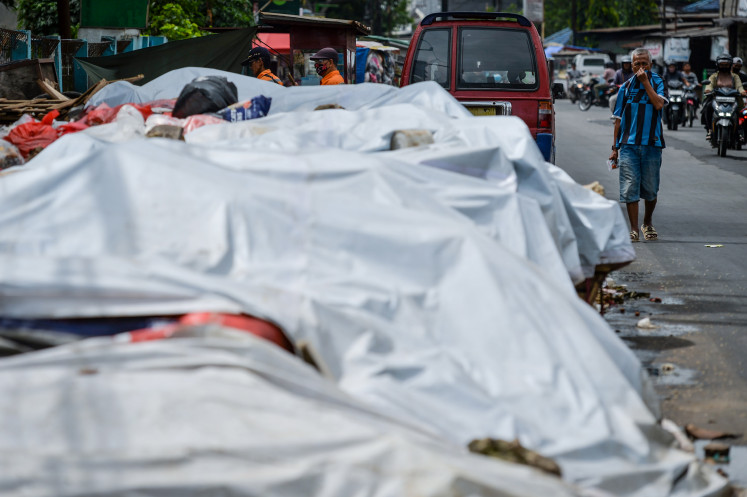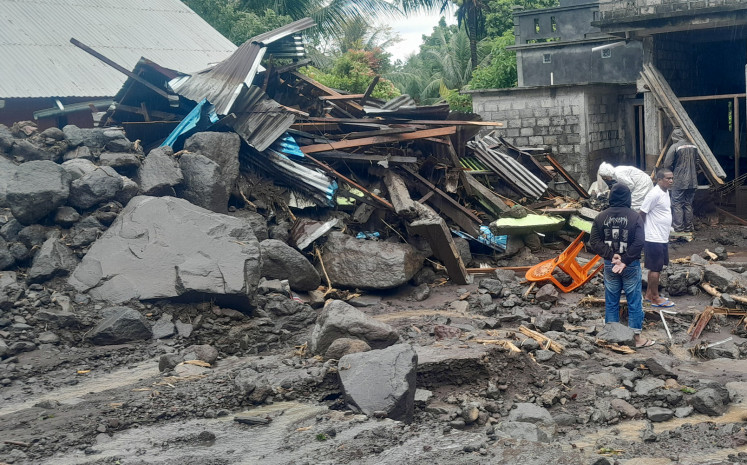Popular Reads
Top Results
Can't find what you're looking for?
View all search resultsPopular Reads
Top Results
Can't find what you're looking for?
View all search resultsWar against terrorism in Southeast Asia
Through serious counterterrorism measures, governments in Southeast Asia have successfully weakened the physical infrastructure of terrorism in the region
Change text size
Gift Premium Articles
to Anyone
T
hrough serious counterterrorism measures, governments in Southeast Asia have successfully weakened the physical infrastructure of terrorism in the region.
The Jemaah Islamiyah (JI) and the Abu Sayyaf Group (ASG), two major terrorist groups in Southeast Asia, are heavily factionalized and are severely damaged with the death, arrest and neutralization of their key leaders.
Though JI was able to mount the Jakarta bombing in July 2009 while the ASG continues to bomb churches in the Southern Philippines and engages in kidnap-for-ransom activities, security authorities in Southeast Asia have dealt a number of stern blows against the JI and the ASG.
The Mantiqi structure of JI has been dismantled while the original organizational set-up of the ASG has been disrupted.
Some members and key leaders of JI and ASG are currently in jail while others have disengaged or have undergone rehabilitation.
However, there is no reason to be complacent as surviving elements of JI and ASG are still planning future attacks.
Remaining leaders are still engaged in vigorous recruitment activities to lure younger Muslims to join their cause through open and discreet ideological indoctrination as well as vigorous material inducement.
While the threat of terrorism in Southeast Asia has subsided, it has not totally disappeared because there are remnants who are still committed to wreak havoc.
Succeeding leaders of JI and ASG also take advantage of the vulnerability and gullibility of young populations in the countryside in their attempt to find new recruits and replenish lost members.
While police and military operations against terrorist groups in the region have diminished the threat of terrorism, there is a larger challenge to address the underlying conditions conducive to the spread of terrorism.
This requires more than military solutions. It needs political, economic and social interventions that governments alone can not accomplish.
In Southeast Asia, countering terrorism has always been mistakenly viewed as the sole responsibility of the government.
The "whole-of-government" approach in counterterrorism now common in the region indicates this government-centered view.
But there is now a growing recognition that civil society organizations (CSOs) have an essential role in counterterrorism, particularly in addressing the conditions conducive to the spread of terrorism.
While the "whole-of-government" approach is important for the government to fulfill its mandated task in providing peace and order for its citizens, the complexity of problems facing society today requires all stakeholders to take part in the solution.
In short, there is a need for the "whole-of-nation" approach that recognizes the vital role of CSOs in addressing the problem of terrorism.
CSOs in Southeast Asia have been involved in a variety of activities that have tremendous bearing in preventing and combating terrorism in the region.
These CSOs are pursuing pertinent projects that aim to reduce poverty, protect the environment, promote human rights and the rule of law, uphold democratization, pursue good governance, and advocate against the harsh impact of globalization.
Though CSOs in Southeast Asia are not directly involved in counterterrorism operations of their governments, CSOs indirectly contribute to the implementation of Global Counterterrorism Strategy of the United Nations, particularly in addressing the underlying conditions conducive to the spread of terrorism.
CSOs in Southeast Asia started to proliferate in the 1980s to promote democratization, uphold human rights and advocate for sustainable development.
CSOs grew bigger in the late 1990s, particularly in the aftermath of the 1997 Asian financial crisis, to rally against the neo-liberal model of economic development in Southeast Asia.
At present, CSOs in Southeast Asia have formed regional coalitions and networks, which led to the transnationalization of their programs and activities.
There are three types of CSOs in Southeast Asia: community-based CSOs, nationally-oriented CSOs and regionally-oriented CSOs. These three types of CSOs have complex of web of linkages and interrelationships as they work together on a variety of converging issues to synergize their efforts.
Based on various sources of current estimates, there are at least 5,000 nationally registered CSOs in Singapore, 15,000 in Malaysia, 20,000 in Thailand, 70,000 in Indonesia and 80,000 in the Philippines.
The number of regionally-oriented CSOs in Southeast Asia is not yet determined but based on the register of ASEAN affiliated-CSOs, there are 58 regionally-oriented CSOs carrying a wide-range of activities from bankers association, sports club, musicians groups and other professional associations.
In the area of counterterrorism in Southeast Asia, there is a great deal of effort to harmonize state and civil society efforts. Because of existing state-civil society tensions in most Southeast Asian countries, CSOs have become important critics of state-led counterterrorism activities.
CSOs in Southeast Asia are playing the role of "watchdogs" to check the excesses of states in countering terrorism in the region.
At the same time, some CSOs are in the government's "watch lists" for having been suspected of providing legal cover or protection for some personalities accused of crimes associated with terrorism.










